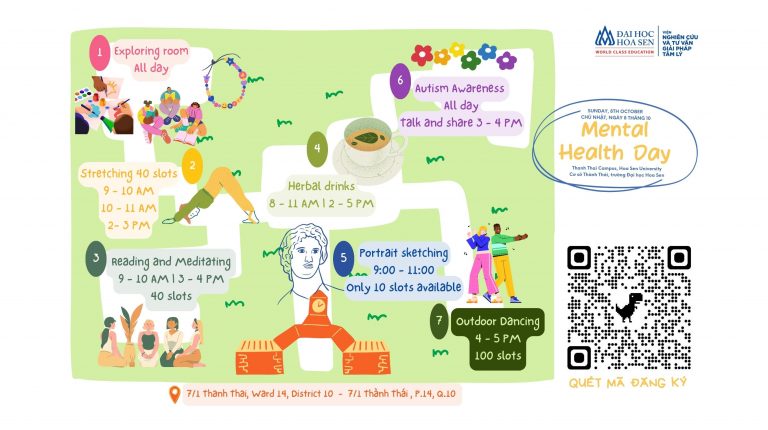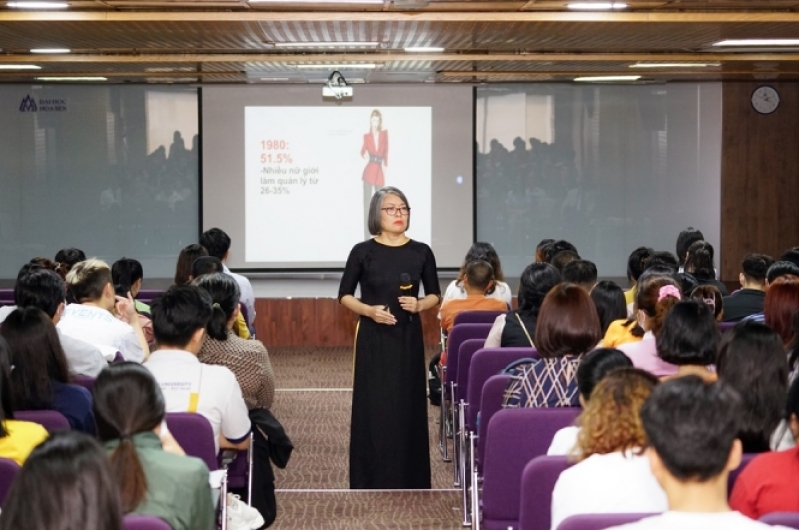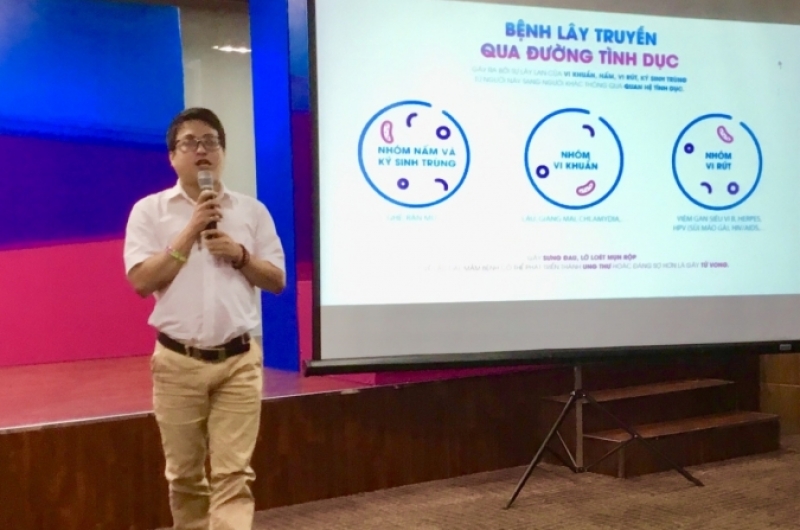Men Sit and Relax While Women Still Have to Serve Tea and Water to Guests. Everyday Sexism Like This Harms Women’s Mental Health
March 15, 2022
Author/Author: Ph.D. Beatrice Alba -Lecturer- La Trobe University
Translator/Translator: Doan Thi Ngoc – Teacher-Lecturer, Hoa Sen University (HSU)

Sexism and misogyny disadvantage women in many different ways. Women have been and are not only disadvantaged economically, in the workforce, in health care, in intimate partner violence, in public gender-based violence, and in street harassment.
Furthermore, even in 2019, women still face denial that gender inequality exists. Some people still believe that anti-discrimination laws, equal pay policies, and guarantees of motherhood are not barriers to labor market participation, but all of these are necessary to achieve gender equality.
But sexism is pervasive in society in more subtle ways – and its effects are not always tangible or easily recognized. This discrimination happens not only in the workplace, on the street, but also in the social environment and our own homes, and sometimes it happens by the very people who love us.
It can also start very early, when we are children, for example: when parents ask their daughter to serve tea to guests at a family gathering, and the son is free to relax or sit and chat with other male relatives.
People around them may not notice everyday sexist behavior, but it can be debilitating for women and is linked to poorer physical and mental health.
WHAT IS ‘EVERYDAY GENDER DISCRIMINATION’?
Researchers demonstrated everyday experiences of sexism using daily journaling. In a series of studies from the United States, researchers asked 107 women and 43 men to record in diaries any sexist incidents they encountered over two weeks.
One form of sexism that participants encountered was the endorsement of traditional gender role stereotypes and biases. For example, one participant said that they experienced stereotyping statements such as “Don’t worry her pretty little head about complicated insurance issues.”
A second type of sexism that participants encountered was when they were put down or insulted, through sexist language and jokes.
A third type of sexism is sexual objectification, such as street harassment and unwanted touching. For example, one participant reported that a stranger at the party grabbed her waist as he was walking by.
In some contexts, women may not face any formal barriers to participation, but may still face cultural norms that disadvantage them.
For example, women in traditionally male-dominated fields such as STEM (science, technology, engineering, and mathematics) can become targets of negative bias and stereotypes and underestimate their success.
This negative stereotype can include being evaluated lower or being given easier tasks. Women may also be excluded and isolated, for example not being invited to after-hours social events.

Anti-sex discrimination rules and laws do not prevent people with sexist attitudes from STOP treating others unfairly in everyday interactions. This is especially true when it happens unconsciously, in ways that people cannot detect.
DISCRIMINATION BECOME NATURAL
Although individual instances of this unfair treatment may seem small enough to be harmless, they can be frequent and widespread. Everyday sexism often appears at a low but constant level and serves as another small factor that adds to the stress in our lives.
It’s no surprise that these subtle forms of everyday sexism are linked to poorer mental health among women.
The daily diary study described above found that reports of frequent daily sexism were correlated with predictions of poorer mental health.
Previous research shows that experiencing sexism is linked to poorer mental and physical health, including post-traumatic stress disorder (known as PTSD), excessive alcohol consumption, and smoking.

More recently, a study found that experiences of sexism in the workplace are partly responsible for poorer health outcomes in women compared to men.
However, research shows that other factors moderate the relationship between discrimination and health outcomes. For example, women with high self-esteem do not seem to suffer from bad discrimination.
Given the prevalence of gender discrimination, research on its impact on mental health remains low. However, existing research findings are corroborated by studies of the mental health impacts of discrimination based on race and sexual orientation.
GENDER DISCRIMINATION MAY BE INVISIBLE TO SOME PEOPLE
Research consistently shows that perceptions of discrimination for any reason have an impact on mental and physical health. And subtle forms of discrimination can be more harmful than overt forms of discrimination.
It can be difficult for people who don’t experience sexism daily to recognize it. Research shows that men are less accepting of evidence of sexism than women. This may be because everyday perceptions and observations are limited by our experiences and our biases.

Narrative evidence alone is not enough to demonstrate the full reality of everyday sexism and its impacts. Scientific research reveals more than our intuitions do about the nature of these phenomena, with greater precision.
GENDER DISCRIMINATION IS A HEALTH PROBLEM
Because of this connection to well-being, it is reasonable to consider sexism as a public health issue.
Doing so will widen the circle of those responsible for protecting the well-being of those affected. Governments must reduce these health disparities, just as they need to invest in reducing other public health problems, including tobacco addiction and obesity.
Although gender stereotypes are still as prevalent as they were 30 years ago, there is promising evidence that we can learn from them to reduce everyday sexism.
One such intervention is to simulate the experience of discrimination by randomly assigning a group of participants to experience “small and seemingly harmless advantages” through a game.
Direct experience of discrimination, and critical analysis of it, increases our ability to recognize the harm that sexism causes and increases our intention to overcome it.
Creating a more equitable society requires some antidote to the mental health impacts of sexism. And as we know, prevention is better than cure.
The Conversation newspaper and author Beatrice Alba allowed Gendertalkviet to translate into Vietnamese and post the full text. On behalf of the Gender Talk Editorial Board, we would like to send our sincere thanks to the Author and The Conversation Newspaper for allowing us to republish the full text. The contributions of The Conversation Newspaper and the author are very valuable and meaningful.
Vietnamese Link: https://gendertalkviet.blogspot.com/2022/01/nam-gioi-ngoi-thu-gian-trong-khi-nu.html
This article is republished from The Conversation under a Creative Commons license. Read the original article
















